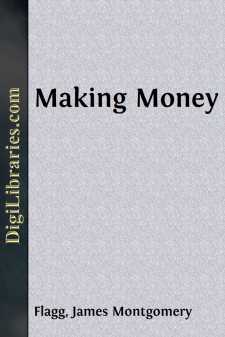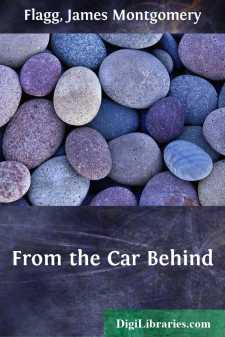Categories
- Antiques & Collectibles 13
- Architecture 36
- Art 48
- Bibles 22
- Biography & Autobiography 813
- Body, Mind & Spirit 142
- Business & Economics 28
- Children's Books 14
- Children's Fiction 11
- Computers 4
- Cooking 94
- Crafts & Hobbies 4
- Drama 346
- Education 46
- Family & Relationships 57
- Fiction 11829
- Games 19
- Gardening 17
- Health & Fitness 34
- History 1377
- House & Home 1
- Humor 147
- Juvenile Fiction 1873
- Juvenile Nonfiction 202
- Language Arts & Disciplines 88
- Law 16
- Literary Collections 686
- Literary Criticism 179
- Mathematics 13
- Medical 41
- Music 40
- Nature 179
- Non-Classifiable 1768
- Performing Arts 7
- Periodicals 1453
- Philosophy 64
- Photography 2
- Poetry 896
- Political Science 203
- Psychology 42
- Reference 154
- Religion 513
- Science 126
- Self-Help 84
- Social Science 81
- Sports & Recreation 34
- Study Aids 3
- Technology & Engineering 59
- Transportation 23
- Travel 463
- True Crime 29
Making Money
Description:
Excerpt
CHAPTER I
THE ARRIVAL
Toward the close of a pleasant September afternoon, in one of the years when the big stick of President Roosevelt was cudgeling the shoulders of malefactors of great wealth, the feverish home-bound masses which poured into upper Fifth Avenue with the awakening of the electric night were greeted by the strangest of all spectacles which can astound a metropolitan crowd harassed by the din of sounds, the fret and fury of the daily struggle which is the tyranny of New York. A very young man, of clean-cut limbs and boyish countenance, absolutely unhurried amidst the press, without a trace of preoccupation, worry, or painful mental concentration, was swinging easily up the Avenue as though he were striding among green fields, head up, shoulders squared like a grenadier, without a care in the world, so visibly delighted at the novelty of gay crowds, of towering buildings decked in electric garlands, of theatric shop-windows, that more than one perceiving this open enthusiasm smiled with a tolerant amusement.
Now when a young man appears thus on Fifth Avenue, undriven, without preoccupation, without a contraction of the brows and particularly without that strained metropolitan gaze of trying to decide something of importance, either he is on his way to the station with a coveted vacation ahead or he has been in the city less than twenty-four hours. In the present instance the latter hypothesis was true.
Tom Beauchamp Crocker, familiarly known as Bojo, had sent his baggage ahead, eager to enjoy the delights one enjoys at twenty-four, which the long apprenticeship of school and college is ended and the city is waiting with all the mystery of that uncharted dominion—The World. He went his way with long, swinging steps, smiling from the pure delight of being alive, amazed at everything: at the tangled stream of nations flowing past him; at the prodigious number of entrancing eyes which glanced at him from under provoking brims; at the sheer flights of blazing windows, shutting out the feeble stars; at the vigor and vitality on the sidewalks; at the flooded lights from sparkling shop windows; at the rolling procession of incalculable wealth on the Avenue.
Everywhere was the stir of returning crowds, the end of the summer's hot isolation, the reopening of gilded theaters, the thronging of hotels, and the displays of radiant shop fronts, preparing for the winter's campaign. In the crush of the Avenue was the note of home-coming, in taxicabs and coupés piled high with luggage and brown-faced children hanging at the windows, acclaiming familiar landmarks with piping cries. Tradesmen and all the world of little business, all the world that must prepare to feed, clothe, and amuse the winter metropolis, were pouring in.
And in the midst of this feverish awaking of luxury and pleasure one felt at every turn a new generation of young men storming every avenue with high imaginations, eager to pierce the multitudes and emerge as masters. Bojo himself had not woven his way three blocks before he felt this imperative need of a stimulating dream, a career to emulate—a master of industry or a master of men—and, sublimely confident, he imagined that some day, not too distant, he would take his place in the luxurious flight of automobiles, a personage, a future Morgan or a future Roosevelt, to be instantly recognized, to hear his name on a thousand lips, never doubting that life was only a greater game than the games he had played, ruled by the same spirit of fair play with the ultimate prize to the best man.
In the crowd he perceived a familiar figure, a college mate of the class above him, and he hailed him with enthusiasm as though the most amazing and delightful thing in the world was to be out of college on Fifth Avenue and to meet a friend.
"Foster! Hallo there!"
At this greeting the young man stopped, shot out his hand, and rattled off in business manner: "Why, Bojo, how are you? How's it going? Making lots of money?"
"I've just arrived," said Crocker, somewhat taken back.
"That so? You're looking fine. I'm in the devil of a rush—call me up at the club some time. Good luck."
He was gone with purposeful steps, lost in the quick, nervous crowd before Crocker with a thwarted sense of comradeship could recover himself....




